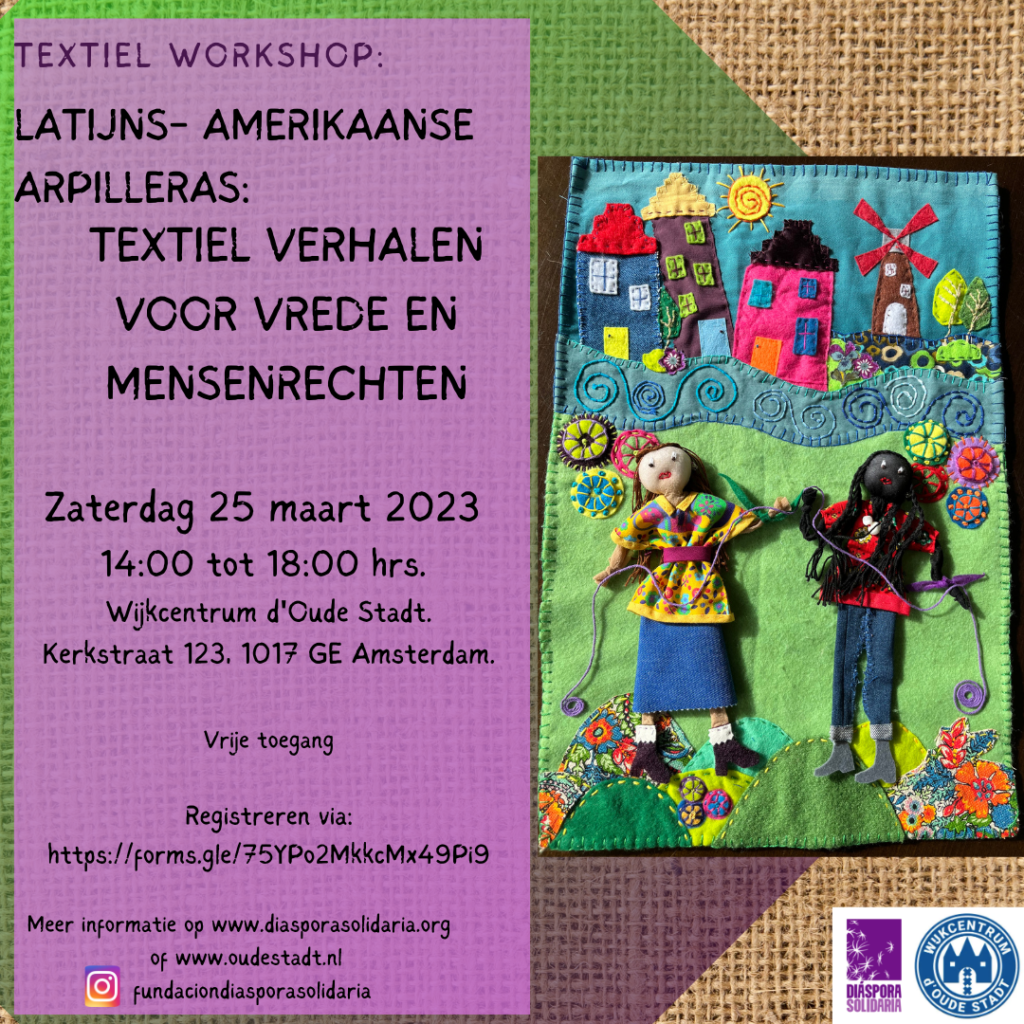
Discover the beautiful, deep and emotional art of the Latin American Arpilleras and let your creative ideas loose.
During the Latin Arpilleras workshop, you will learn the technique to create a unique work of art. You don’t have to be an artist, just be inspired by your dreams, feelings and desires. Above all, we want you to express your imagination and creativity, through needles, fabrics and threads.
Together, we will create a collective work of art in which common stories and experiences are shared with harmony and respect. In this way, we want to represent our common space, be it the Wijkcentrum d’Oude Stadt, the neighborhood or even the city of Amsterdam, with its symbols, colours and shapes. To participate in this workshop, it is not necessary to have prior knowledge of sewing or embroidery.
The name Arpillera (or burlap) refers to a type of cloth, usually used for wrapping foodstuffs, such as flour or wheat. It was first used as a canva by the great Chilean artist Violeta Parra around 1960. She named the textile work that resulted from her creative, profound and self-taught way of embroidering her dreams, desires and sorrows on them, arpillera. Soon, the technique was enriched by the hands of the “Bordadoras de Isla Negra”, a collective of women embroiderers from this coastal town in Chile.
In the 70s and 80s, it became an important popular textile tradition cultivated by hundreds of women in Chile as an act of resistance and denunciation during the Pinochet dictatorship. These “embroidered pictures” became a living testimony of the human rights violations during the dictatorship, but also a form of emotional restraint in the face of the tireless struggle for truth and social justice. Nowadays, this technique is used by women and artists across Latin America.
Materials needed:
1. Pieces of coloured fabric (ideally, they should not be elastic or too rigid). The idea is to reuse fabrics and textiles that you already have at home.
2. Sewing and/or embroidery thread and needles
3. Wool.
4. (If you have) Nylon panties and synthetic cotton.
We invite you to bring a biscuit to share during the workshop.
Free entrance , limited places. Registration in: https://forms.gle/M3vSyu5ECnqSYL8f9
Workshop guided mainly in Dutch.
